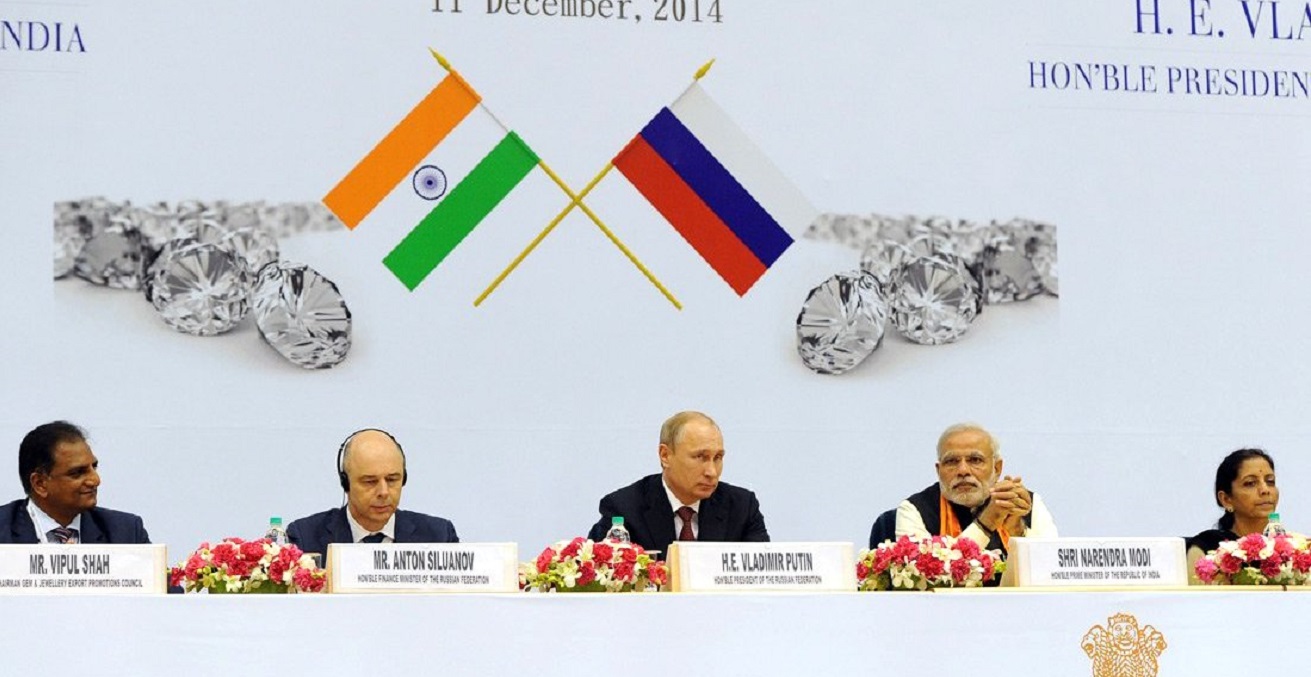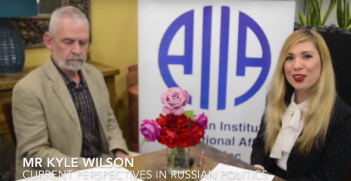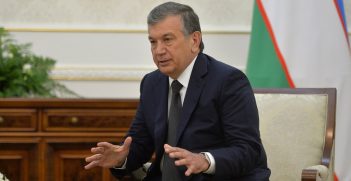Re-calibrating Relations with Russia: The Makings of a New Indo-Pacific Strategy?

Russia is well-aware that it is no exception to China’s hegemonic ambitions. To effectively constrain China, the United States and its allies and partners must recalibrate their engagements with Russia.
In July 2020, the Indian ambassador to Russia, DB Venkatesh Varma, said that India wants Russia to be more involved in the Indo-Pacific and that Moscow should look at its own interests in the region in order to create a mutual basis for cooperation and dialogue. Furthermore, the ambassador stated that, “We see Russia as a very important Pacific power… Just like Russia has an interest in the Indian Ocean, we have an interest in the Pacific Ocean. I think the connectivity that we are looking at, we are looking at Indo-Pacific as a geographic continuum for cooperation and for certain principles that we want this region to be free and fair for everyone.”
In a similar vein, the American President Donald Trump emphasised that it was “common sense” to have Russia join the Group of Seven (G7). This, according to him, would make it significantly easier to solve several pressing issues if Moscow were represented at the gathering. What can be assumed by these gestures is that states like India and the US have realised that in order to effectively constrain China’s strategic clout and assertion in the region, engagements with Russia will have to be re-calibrated.
Russia in China’s Great Power Calculus
In an anarchic international system where China is assertively growing and increasing its relative power, it may well become a threat to its neighbours, including Russia. Some believe, such as Professor John Mearsheimer, that with China aiming to dominate Asia as a regional hegemon, it will try to imitate what the US has done in the western hemisphere. This would mean that China will embark on a significant level of expansionism. Current trends have clearly shown that this is, indeed, the direction in which China is heading.
Its expansive claims in the South China Sea, the East China Sea, in South Asia, and in the Russian city of Vladivostok have become a source of great concern. Moreover, Beijing’s revisionist interests know no limits. This means that China’s aim is not to complement the status-quo order but rather to alter it in a way that will best suit its strategic interests. Considering that there is no sufficient enforcement mechanism that puts China’s expansionist interests in check, its engagements have been dictated by narrow strategic objectives that may come at the expense of its neighbours and so-called partners. Moreover, Sino-Russian relations are marred with mistrust and narrowly defined interests. The US and its like-minded allies and partners should capitalise on this trajectory of China in order to bring Russia “out of the cold.” In other words, Russia must be brought out of diplomatic, political, and economic isolation in order to effectively address China’s assertion and strategic manoeuvres in the Indo-Pacific.
Lessons from History
The suggestion of bringing a major state “out of the cold” is not a new phenomenon in international politics. The prospect of bringing Russia inside the Indo-Pacific reflects a historical analogy to the height of the Cold War. Relations between the Union of the Soviet Socialist Republics (USSR) and mainland China became strained during the Sino-Soviet split caused by their different takes on the communist doctrine and the insecurity derived from their geographical proximity. The US capitalised on the gap between China and the USSR to bring China out of the cold.
In 1972, President Richard Nixon and National Security Adviser Henry Kissinger made a historic visit to Beijing and met with Chinese leader Mao Zedong. In a 1967 Foreign Affairs article, Nixon argued that the US could not leave China forever in anger and isolation. Doing so would not necessarily mean dropping the actual threat China may bring against American interests in Asia, but rather creating a serious distinction of short-term and long-term strategic goals. In his view, China had to change, and the US had to induce this change because the US’s national interest cannot be served so long as it does not accept changes in the world. But this diplomatic move was not made overnight. The Nixon administration made far-reaching recalibrations with various government bureaucracies as well as the US Congress. Nevertheless, it clearly shows that such shifts do and can happen.
Because of US efforts to bring China out of the cold, the Soviet Union lost a key pillar of support needed to effectively confront Washington during the Cold War. Today, China continues to push Russia out of the strategic picture with steps like pressuring Vietnam to drop its joint exploration deal with Rosneft, a Russian state-owned oil company, this year. This is one of the many instances that shows that it may be in Russia’s best interest to slowly detangle from Beijing. As a result, this rift may play out to the advantage of the US and its partners in their efforts to constrain China. Moreover, if such a trajectory continues in this direction, there may be significant economic, security, and foreign policy shifts from the US in the long-term to accommodate Russia’s partnership. These are the implications of a multi-polar world.
With China vying for regional hegemony in Asia, the peace and the security of the Indo-Pacific region will be highly provoked. So much so, just like during the Cold War, the U.S. and its like-minded allies must re-calibrate their approach with Moscow and carefully bring it out of the cold in order to effectively constrain China’s assertion, and preserve the status quo and peace of the Indo Pacific region. This is no minuscule task, but history has shown that it is not impossible.
Don McLain Gill is completing his master’s degree in International Studies at the University of the Philippines Diliman. He has written extensively on issues of regional geopolitics and Indian foreign policy.
Joshua Bernard B. Espeña is a defence analyst in the Office for Strategic Studies and Strategy Management of the Armed Forces of the Philippines. He is currently taking his master’s in international studies at the University of the Philippines, Diliman.
This article is published under a Creative Commons License and may be republished with attribution.





